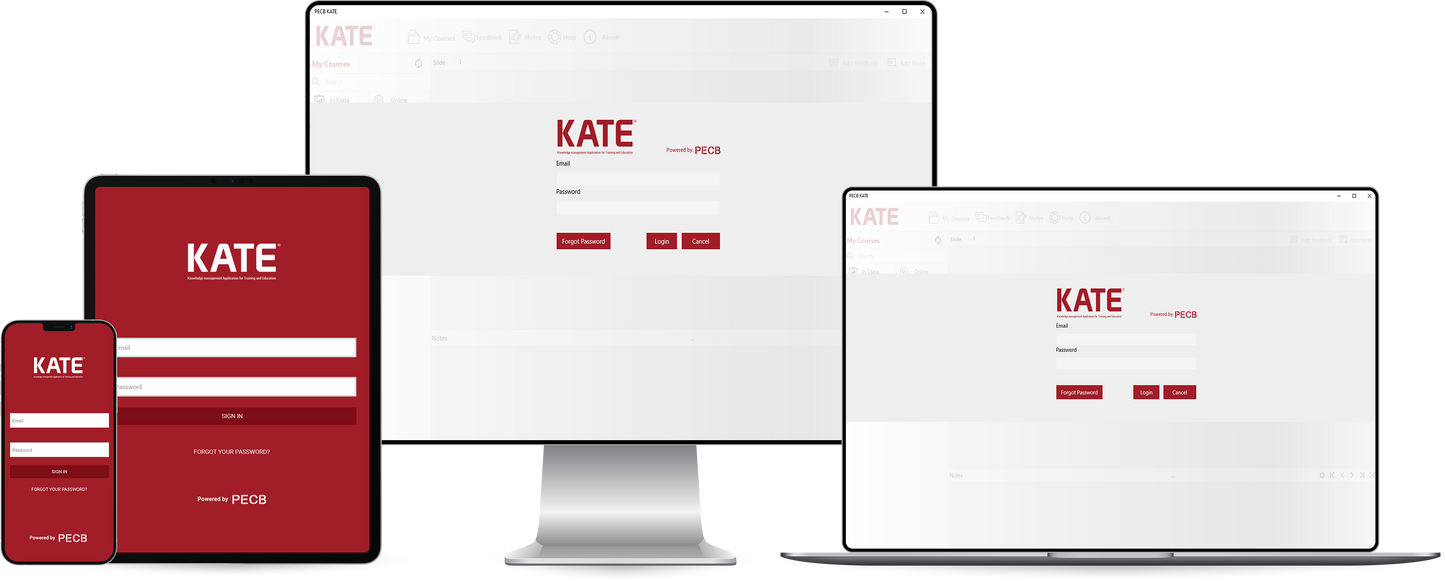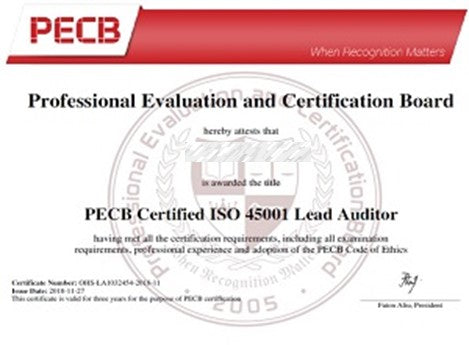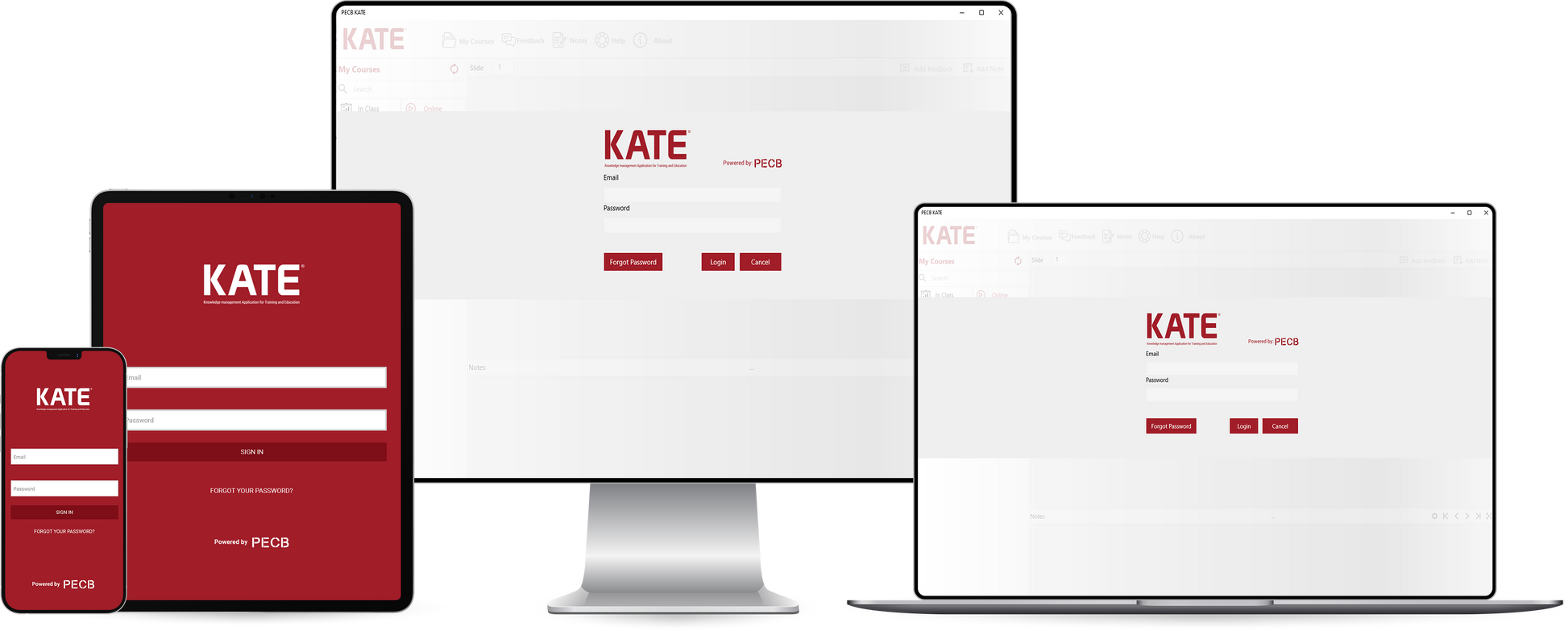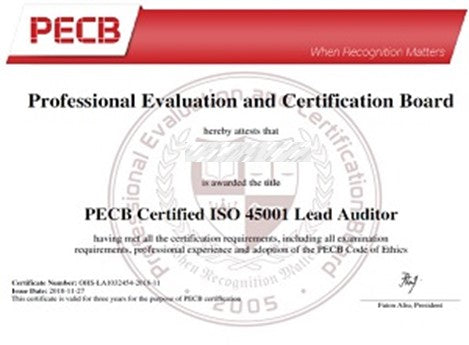Africa Sustainable Performance
PECB Certified ISO 22301 Lead Auditor | Online training
PECB Certified ISO 22301 Lead Auditor | Online training
Couldn't load pickup availability
Partager
Master the Audit of Business Continuity Management Systems (BCMS) based on ISO 22301
Why should you attend ?
Given the increasing number of disruptions and the unpredictability of disasters of any kind (natural, occupational, information security), organizations nowadays are aiming at getting certified against ISO 22301 in order to show commitment toward business continuity and ensure that disruptive incidents are detected and properly addressed, thus the management system is continually improved. By becoming a PECB certified auditor, you will achieve a formal and independent recognition of your personal competences, and you qualify yourself to conduct BCMS audits for a certification body. Recognizing the importance of an effective audit and the means used to successfully conduct it, PECB has designed the ISO 22301 Lead Auditor training course. Attending this training course allows you to obtain the knowledge and skills to plan and carry out audits in compliance with ISO 19011 and the certification process according to ISO/IEC 17021-1. Through interactive sessions, explanatory information, exercises, and questions for discussion, you will be able to acquire knowledge on the business continuity management system as well as audit techniques and become competent to perform a BCMS audit by applying widely recognized audit principles, procedures, and techniques, and to manage an audit program and an audit team. After attending the training course, you can sit for the exam and, if you successfully pass the exam, you can apply for the “PECB Certified ISO 22301 Lead Auditor” credential. The internationally recognized “PECB Certified ISO 22301 Lead Auditor” certificate will prove that you have the professional capabilities and competences to audit organizations based on the requirements of ISO 22301 and auditing best practices.
Who should attend ?
- Auditors seeking to perform and lead business continuity management system (BCMS) audits
- Managers or consultants seeking to master the business continuity management system audit process
- Individuals responsible to maintain conformity with the BCMS requirements in an organization
- Technical experts seeking to prepare for the business continuity management system audit
- Expert advisors in business continuity management
Learning objectives
- Explain the fundamental concepts and principles of a business continuity management system (BCMS) based on ISO 22301
- Interpret the ISO 22301 requirements for a BCMS from the perspective of an auditor
- Evaluate the BCMS conformity to ISO 22301 requirements, in accordance with the fundamental audit concepts and principles
- Interpret the requirements of ISO 22301 in the context of a BCMS audit
- Plan, conduct, and close an ISO 22301 compliance audit, in accordance with ISO/IEC 17021-1 requirements, ISO 19011 guidelines, and other best practices of auditing
- Manage an ISO 22301 audit program
Examination - Duration: 3 hours
The “PECB Certified ISO 22301 Lead Auditor” exam complies with the PECB Examination and Certification Program (ECP) requirements. The exam covers the following competency domains:
- Domain 1 Fundamental principles and concepts of a business continuity management system (BCMS)
- Domain 2 Business Continuity Management System (BCMS)
- Domain 3 Fundamental audit concepts and principles
- Domain 4 Preparing an ISO 22301 audit
- Domain 5 Conducting an ISO 22301 audit
- Domain 6 Closing an ISO 22301 audit
- Domain 7 Managing an ISO 22301 audit program
For specific information about exam type, languages available, and other details, please visit the List of PECB Exams and the Examination Rules and Policies.
FAQ
FAQ
FAQ
Course type and price
- The courses in this webpage are PECB certified Self-study Courses.
- The course can be remotely accessed worldwide
- Certification fees are included in the price of the exam.
- A detailed course manual with practical examples is accessible throughout the training.
- If you fail the exam, you can retake it within 12 months at no additional cost.
Course Approach
- You register for an account at PECB website, before or after order to ASP
- Place order to ASP
- After receiving your bank order payment, you will have access to the course materials, in English unless otherwise specified, normally within a couple of working days
- You can remotely access or download the training materials with PECB Kate app.
- You can complete the self-study at home at your pace.
- The self-study and the initial exam are to complete within 4 months from access granted to the course materials.
Exam
- You can book an online exam at PECB website, for free with the exam code provided by PECB, normally within 4 months after your order to DQS HK.
- Well before the online exam, create exam profile at PECB website, download PECB Exams app and install it at your computer.
- The exam is open-book with duration for 3 hours.
- You can book an online exam retake, if required, at PECB website for free with the exam code provided by PECB, normally within 3 months after your initial exam.
Certificat et qualification
- After receiving an email from PECB with exam passing result, you can reply by email to PECB with request for a course certificate.
- If you have the required working experience and project experience specified in course brochure, you can further apply to PECB for the associated qualification.

About PECB
- Professional Evaluation and Certification Board (PECB) is a Personnel Certification Body accredited by The International Accreditation Service (IAS) under ISO/IEC 17024 – Requirements for bodies operating certification of persons.
- PECB is a full member of International Personnel Certification Association (IPC).
- ASP is a Training Partner authorized by PECB.
Eligibility
PECB certifying trainings provided by Africa Sustainable Performance are available to learners residing in Africa in any of the following countries:
- Egypt, Ethiopia, Angola, Benin, Botswana, Burkina Faso, Burundi, Equatorial Guinea, Togo, Eritrea, Cabo Verde, Gambia, Republic of Congo, Morocco, Democratic Republic of Congo, Djibouti, Guinea, Guinea-Bissau, Ghana, Gabon, Zimbabwe, Cameroon, Comoros, Ivory Coast, Kenya, Lesotho, Liberia, Libya, Rwanda, Madagascar, Malawi, Mali, Mauritania, Mauritius, Mozambique, Namibia, South Africa, Niger, Nigeria, Algeria Sierra Leone, Senegal, Seychelles , Sao Tome and Principe, Swaziland, Sudan, Somalia, Tanzania, Tunisia, Uganda, Zambia, Chad and Central African Republic.








